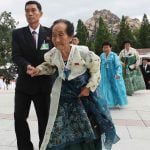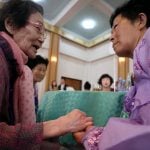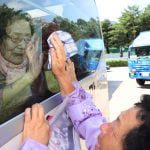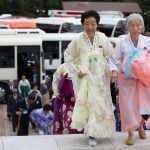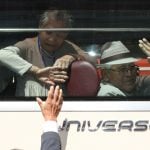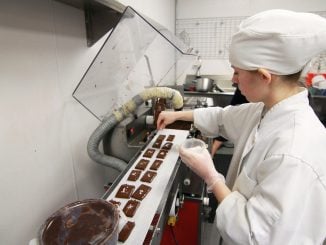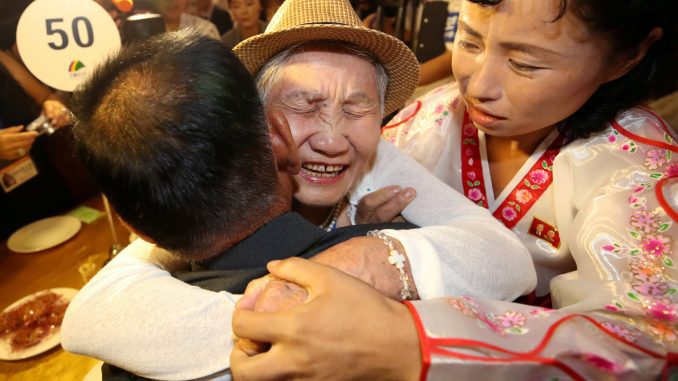
SEOUL, South Korea — About 90 families from North and South Korea wept and embraced this week as the neighbors held their first reunion events in three years for relatives wrenched apart by the Korean War for more than six decades.
The brief reunions are set to total just 11 hours over Monday, Tuesday and Wednesday this week in the North’s tourist resort of Mount Kumgang. North Korean leader Kim Jong Un and South Korean President Moon Jae-in agreed to the reunion events at a summit in April.
About 330 South Koreans from 89 families, many in wheelchairs, embraced 185 separated relatives from the North with tears, joy and disbelief. Some struggled to recognize family not glimpsed in more than 60 years.
“How are you so old?” Kim Dal-in, 92, asked his sister, Yu Dok, after gazing at her briefly in silence.
“I’ve lived this long to meet you,” replied the 85-year-old, wiping away tears as she clasped a photograph of her brother in his youth.
Siblings Kim Gyong Sil, 72, and Gyong Yong, 71, wearing the traditional hanbok dress, colored pale violet, stood nervously staring at the entrance, awaiting their 99-year-old mother Han Shin-ja. They could not speak for minutes, wailed loudly and rubbed their cheeks and hands.
“When I fled home in the war …,” Han said, faltering as she choked with emotion and left her sentence incomplete.
The separated families are victims of a decades-long political gridlock since the 1950-53 war ended in a truce rather than a peace treaty, with ties increasingly strained as Pyongyang rapidly stepped up its weapons programs.
For years, Seoul has called for regular meetings between separated families, including the use of video conferences, but the program often fell victim to fragile ties.
At his historic June summit with President Donald Trump in June, Kim pledged to abandon his country’s nuclear programs if Washington provided security guarantees, but the two sides have since struggled to agree how to reach that goal.
The reunions should be scaled up sharply, held regularly, and include exchanges of visits and letters, said Moon, himself a member of a separated family from the North’s eastern port city of Hungnam.
“It is a shame for both governments that many of the families have passed away without knowing whether their lost relatives were alive,” he told presidential secretaries at a meeting.
“Expanding and accelerating family reunions is a top priority.”
From Thursday, 88 more groups of relatives will meet, comprised of 469 individuals from the South and 128 from the North, Seoul’s Unification Ministry says.
The participants included the families of a prisoner of war and five people abducted by North Korean authorities during the conflict, though the six South Koreans they had hoped to meet had died.
About 132,600 individuals were listed as separated families by the end of July. Of the 57,000 survivors, 41.2 percent are in their 80s and 21.4 percent in their 90s, according to government data.
Many brought gifts of clothing, medicine and food for their North Korean relatives, since anything deemed extravagant by Pyongyang was unlikely to pass muster.

